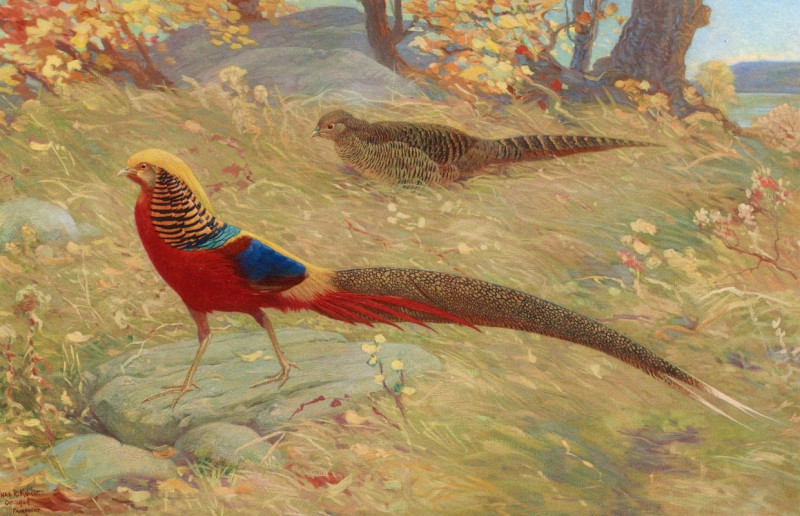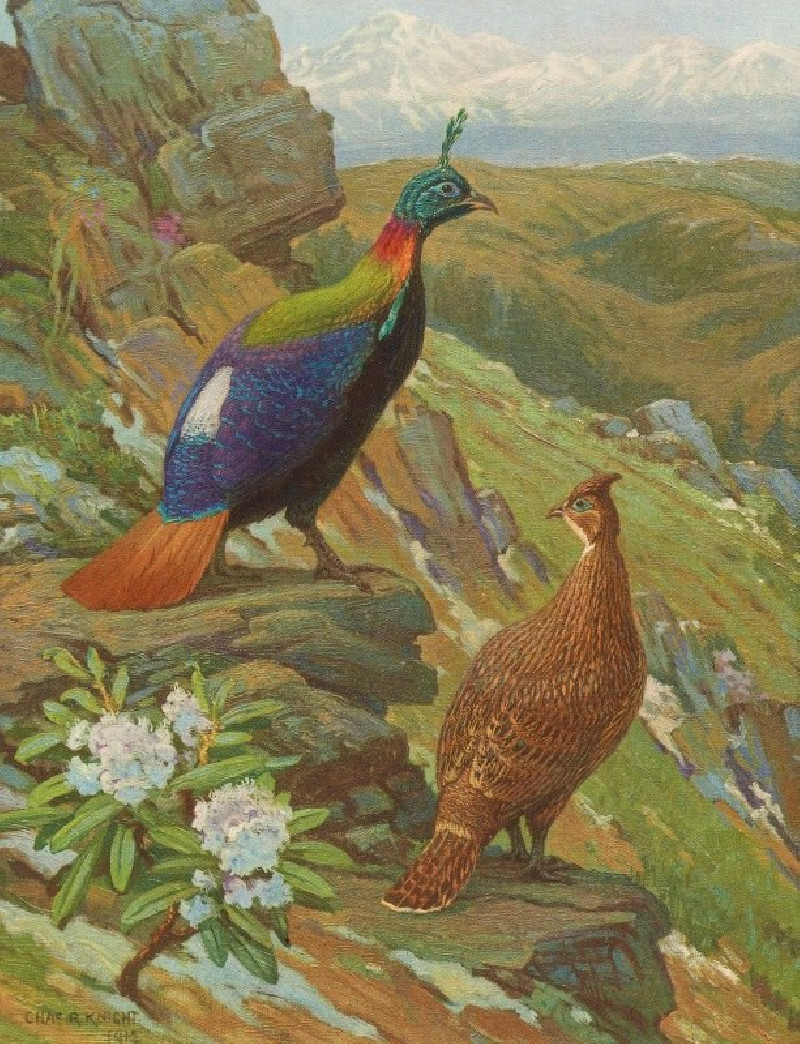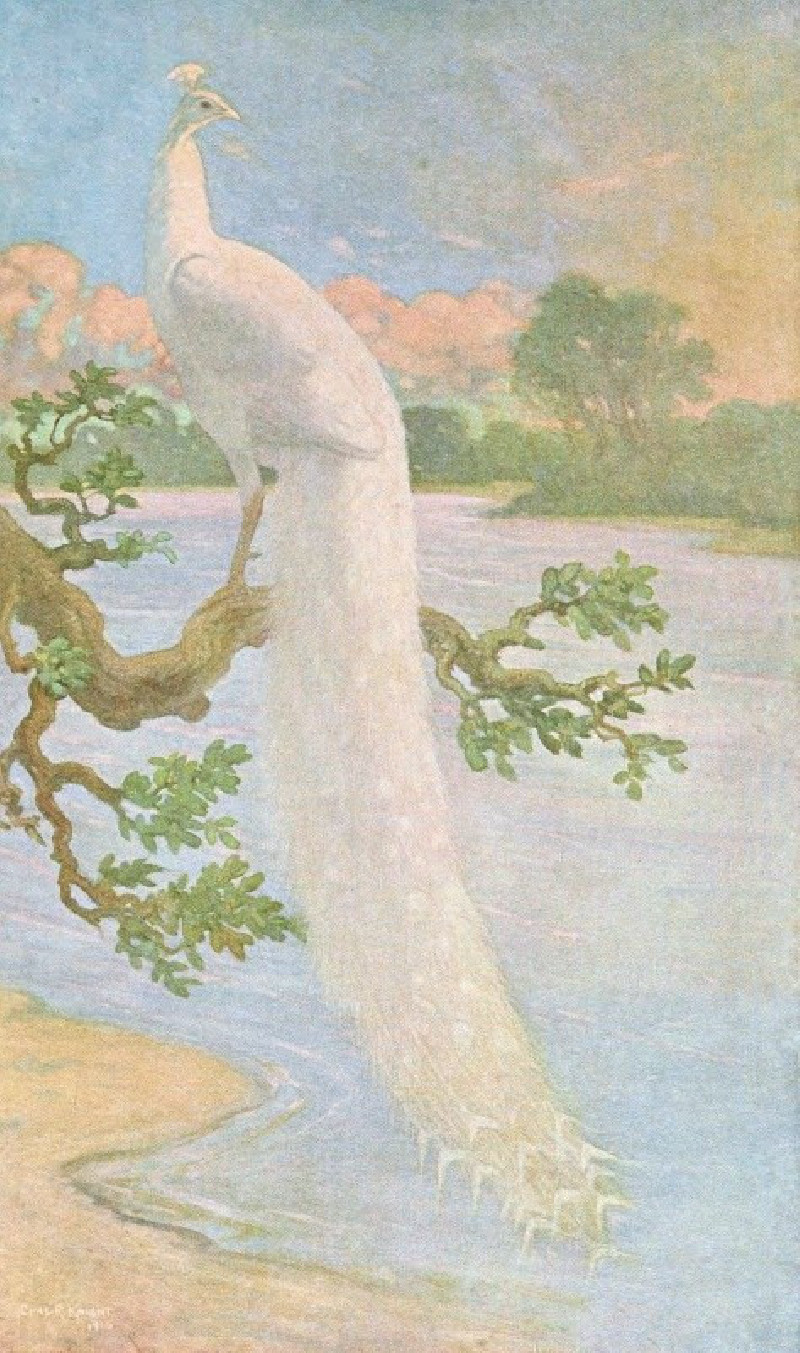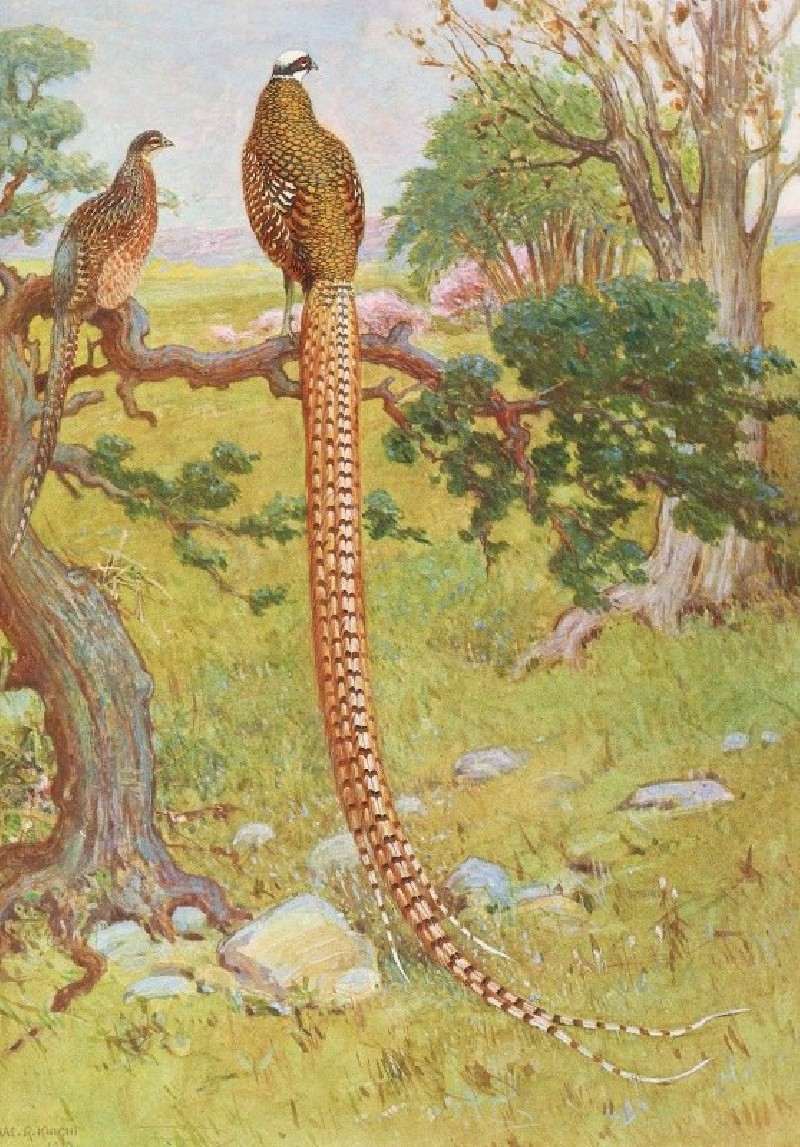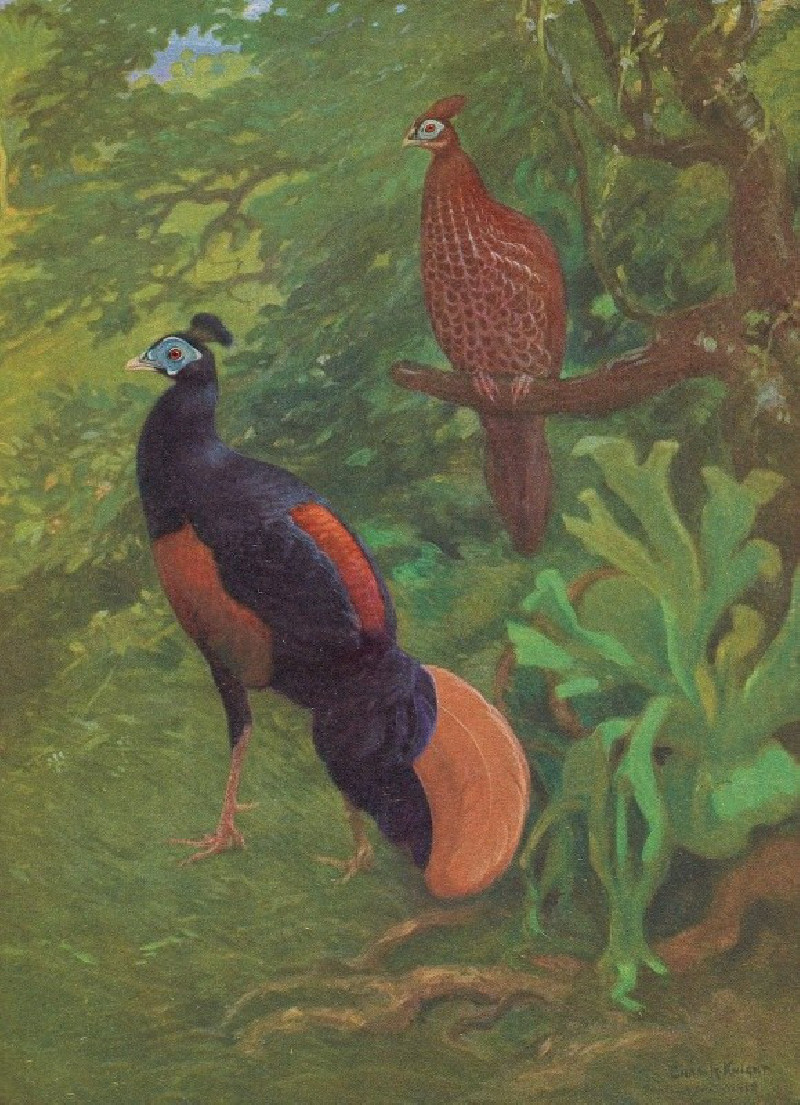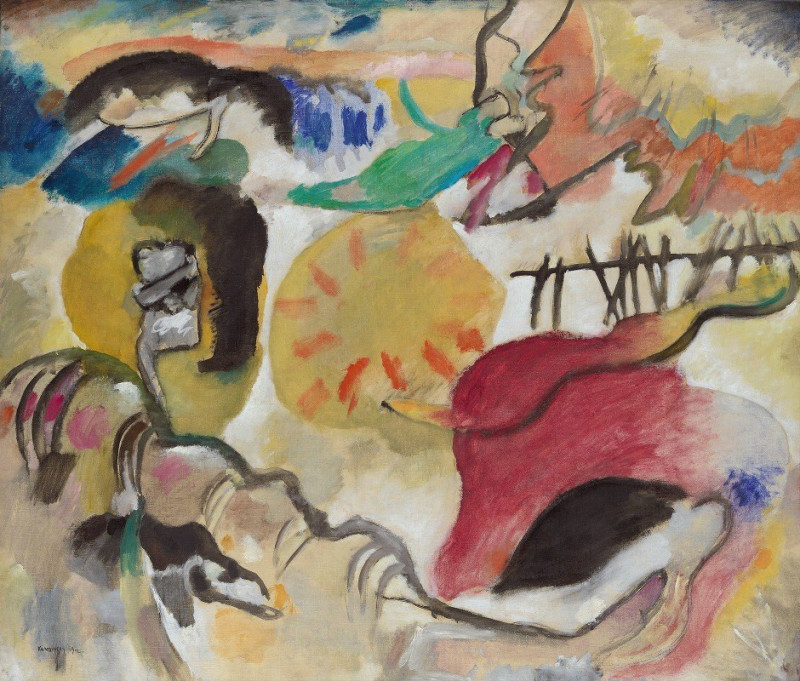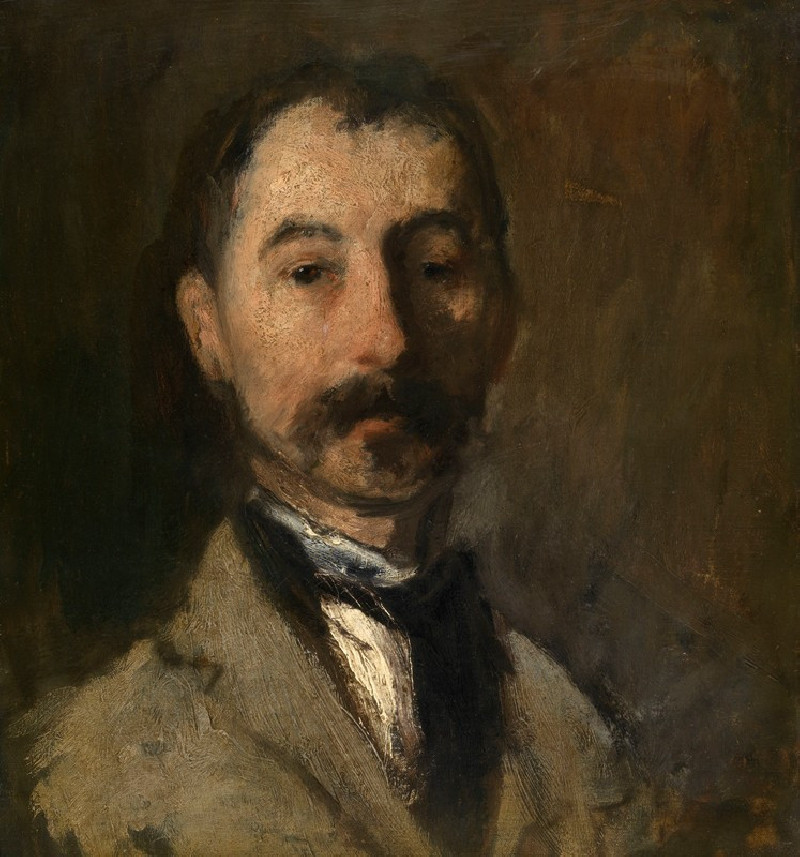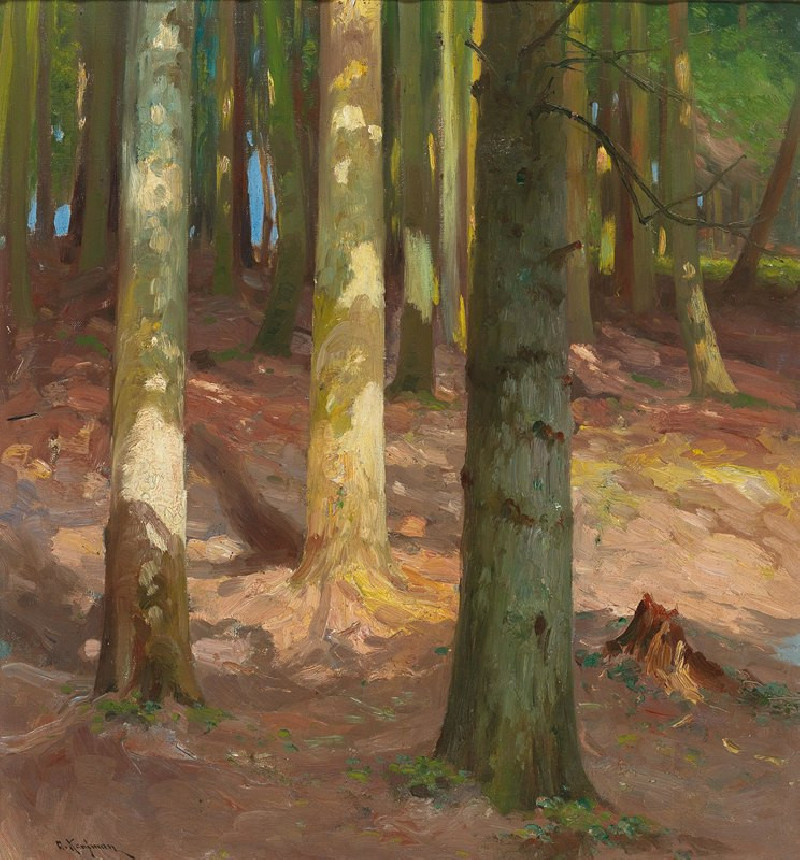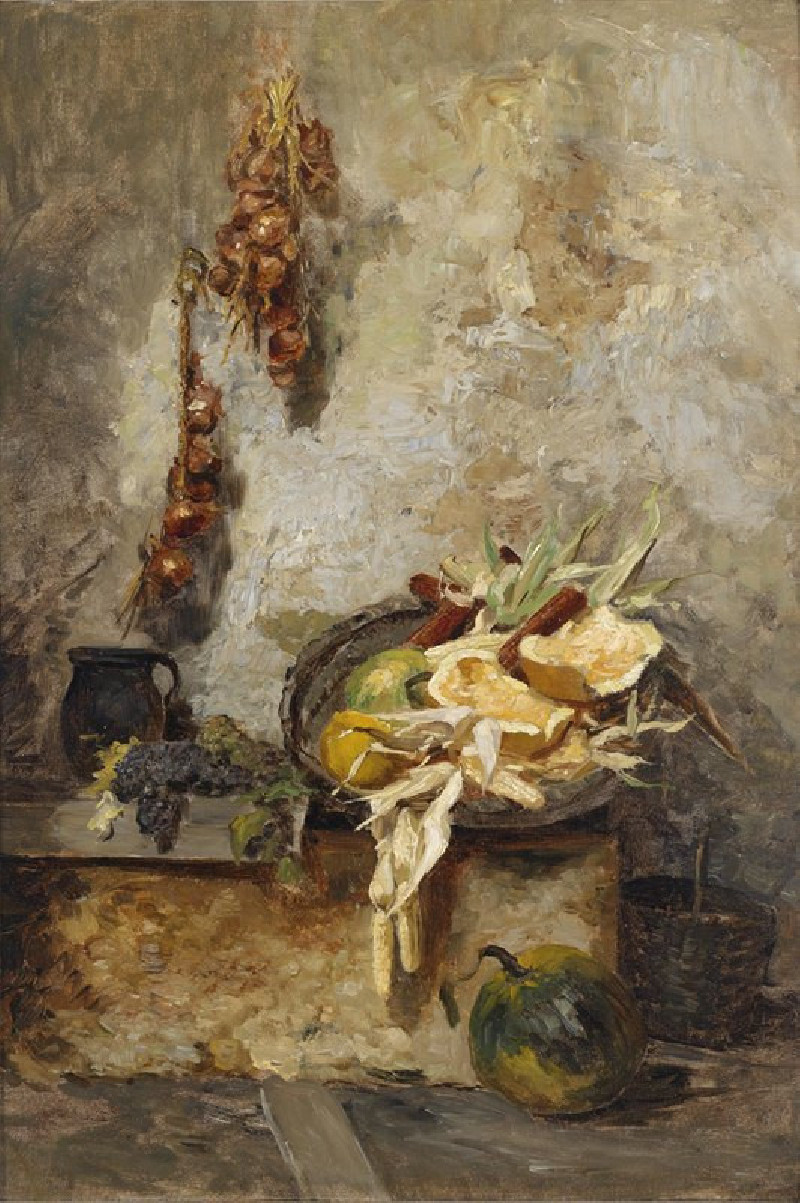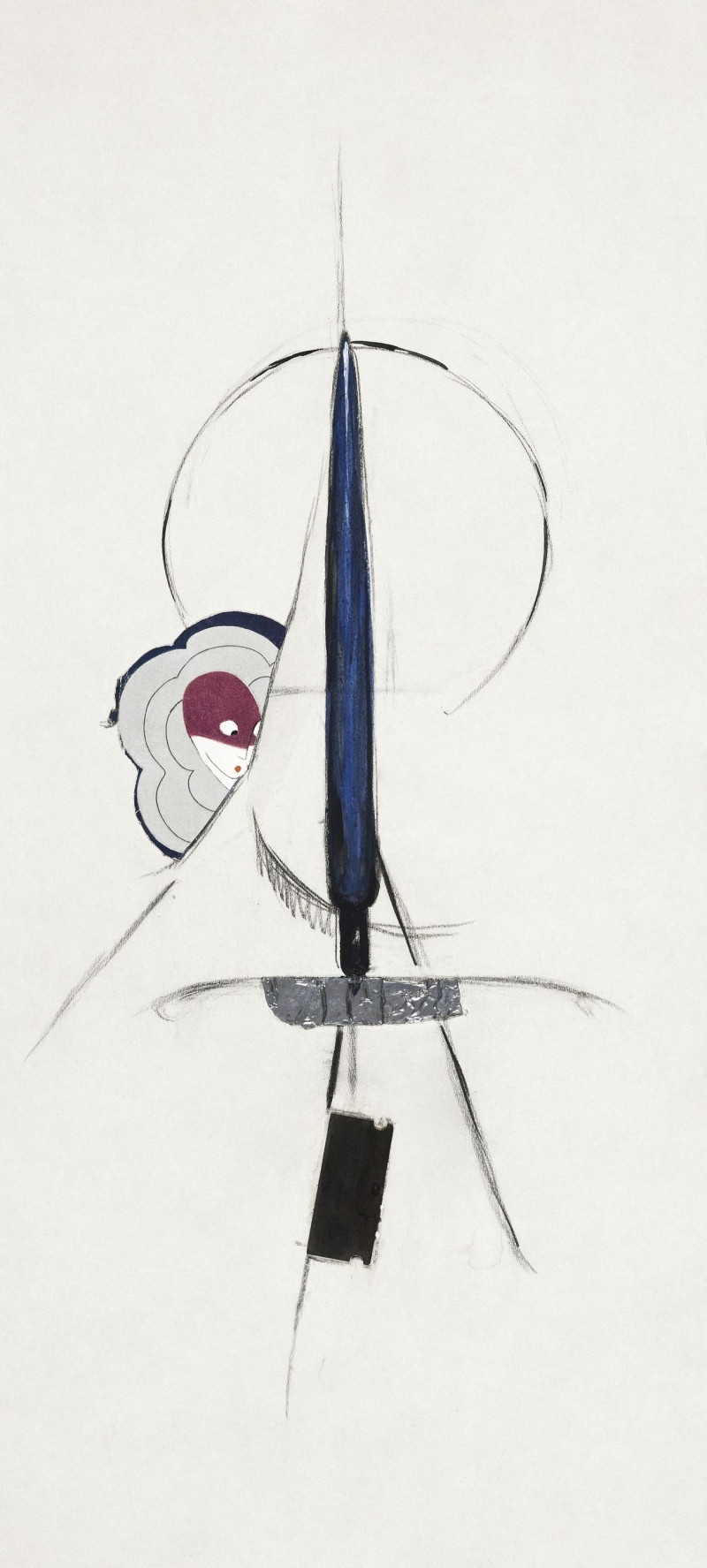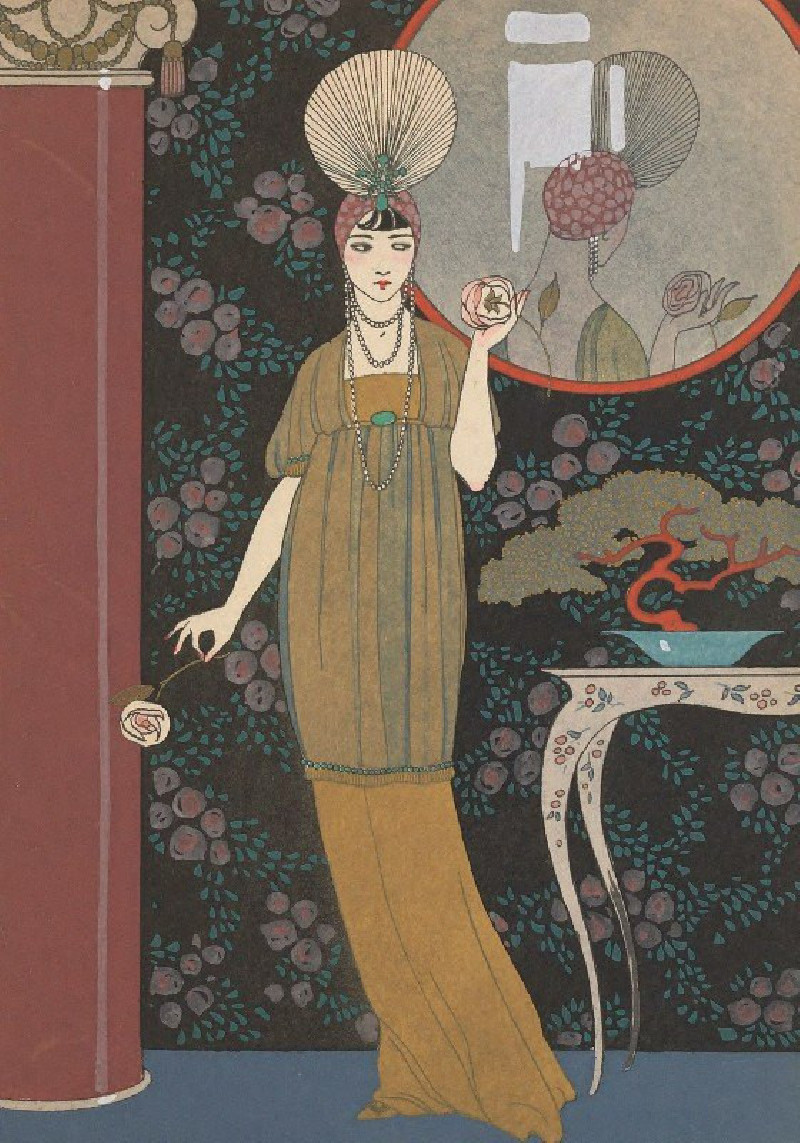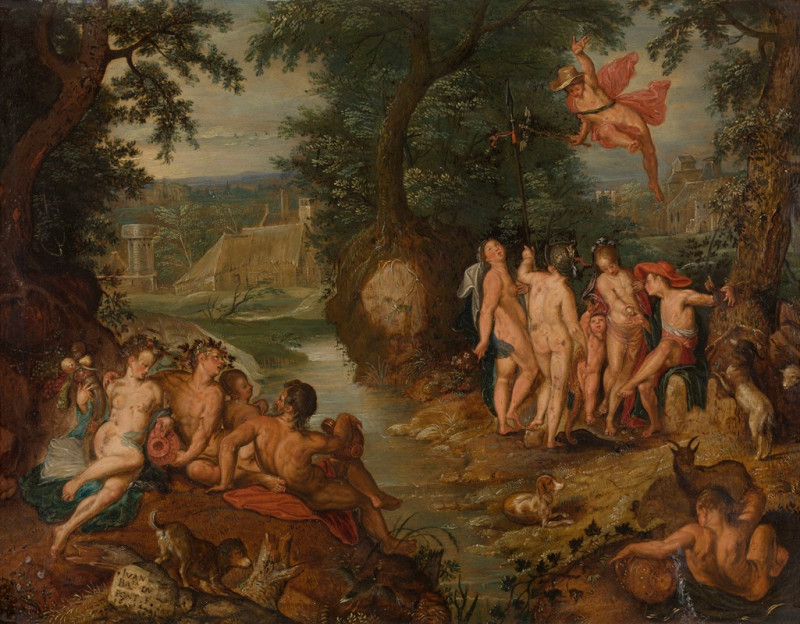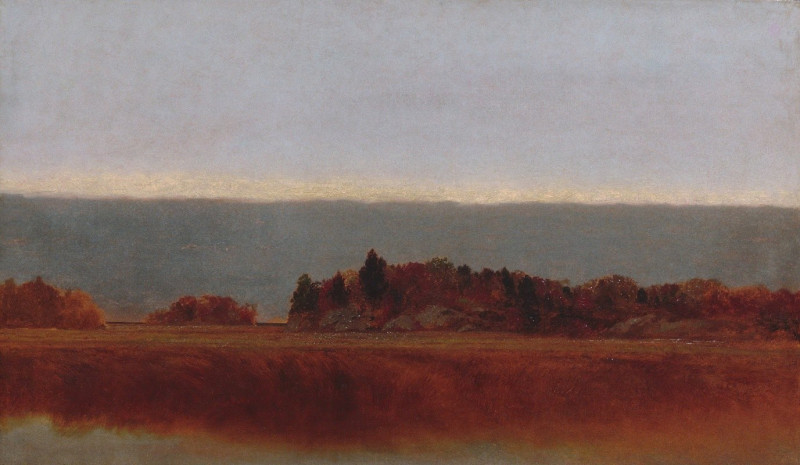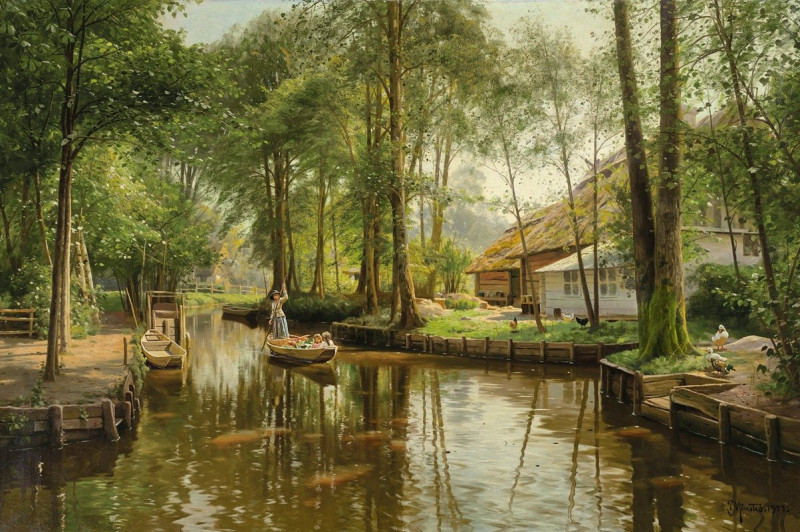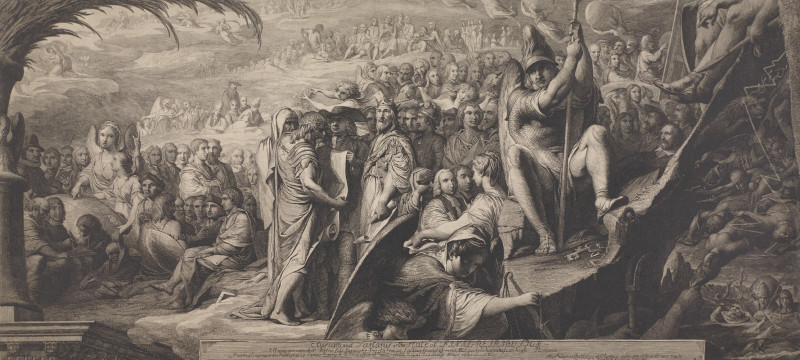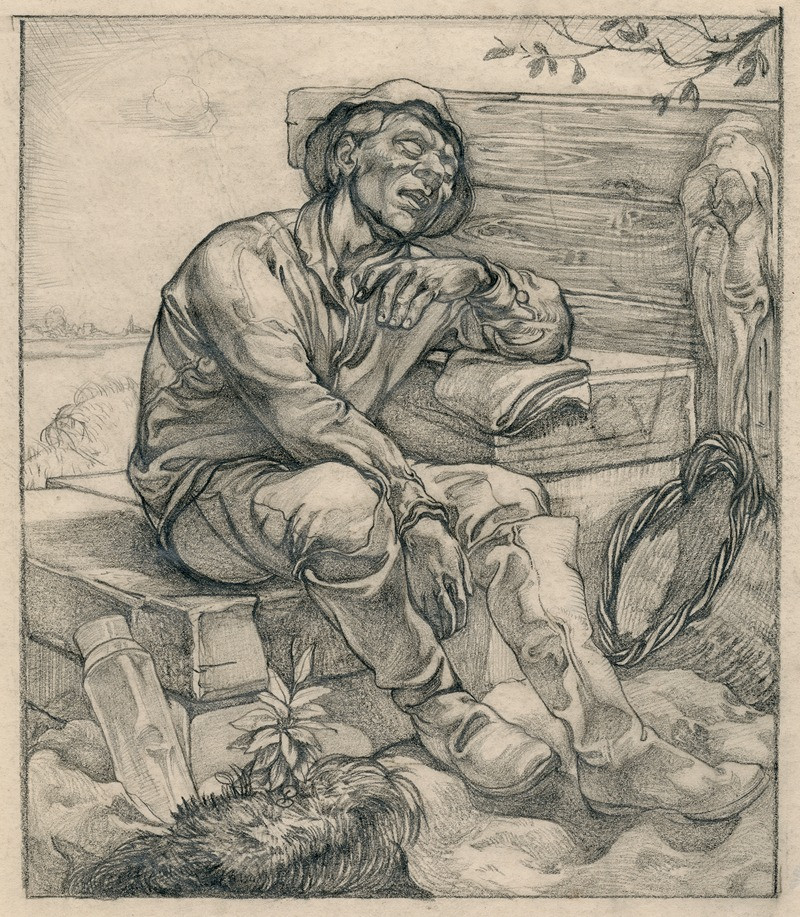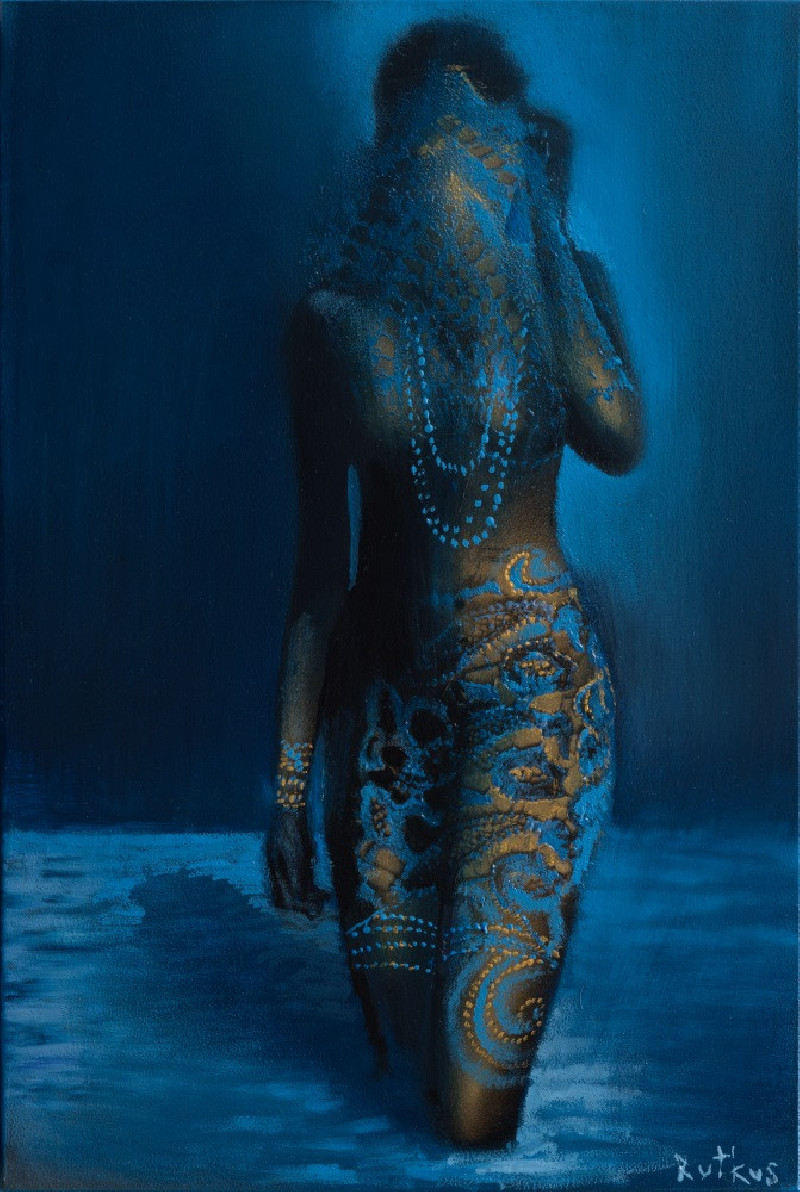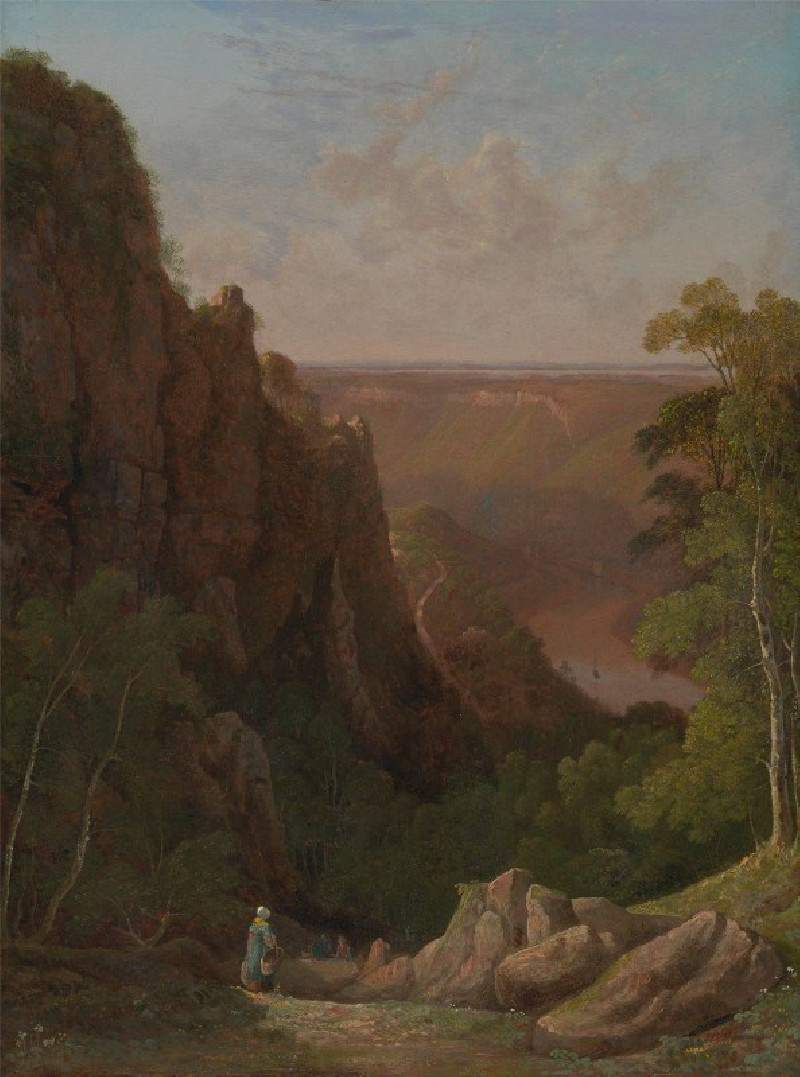Lady Amherst Pheasant (1918-1922)
Technique: Giclée quality print
Recommended by our customers
More about this artwork
"Lady Amherst's Pheasant" is truly a testament to Charles Robert Knight's intricate and detailed artistic style, painted between 1918 and 1922. In this captivating work, Knight paints the exotic and vibrant Lady Amherst's Pheasant with a realism that almost allows the viewer to feel part of its natural, lush environment.The male pheasant, with its striking colors, dominates the scene. It shows off a brilliant plumage with a white and midnight blue crest, a dazzling ruby throat, and a spectacularly long tail with dark rings, evoking a sense of regal splendor rooted in the natural world. Adjacent, a female pheasant and another, which is slightly obscured, offer a subdued contrast with their earthy tones and patterns that blend harmoniously with the dense, green foliage surrounding them.Knight's handling of color and texture brings this scene to life with warmth and vibrancy, suggesting a peaceful moment in a sunlit forest clearing. This painting not only showcases Knight's ability to portray animals with scientific accuracy and artistic elegance, but it also conveys a rich, serene snapshot of wildlife in its most splendid form.
Delivery
Returns
Charles Robert Knight (October 21, 1874 – April 15, 1953) was an American wildlife and paleoartist best known for his detailed paintings of dinosaurs and other prehistoric animals. His works have been reproduced in many books and are currently on display at several major museums in the United States. One of his most famous works is a mural of Tyrannosaurus and Triceratops, which helped establish the two dinosaurs as "mortal enemies" in popular culture. Working at a time when many fossil discoveries were fragmentary and dinosaur anatomy was not well understood, many of his illustrations have later been shown to be incorrect representations. Nevertheless, he has been hailed as "one of the great popularizers of the prehistoric past".


